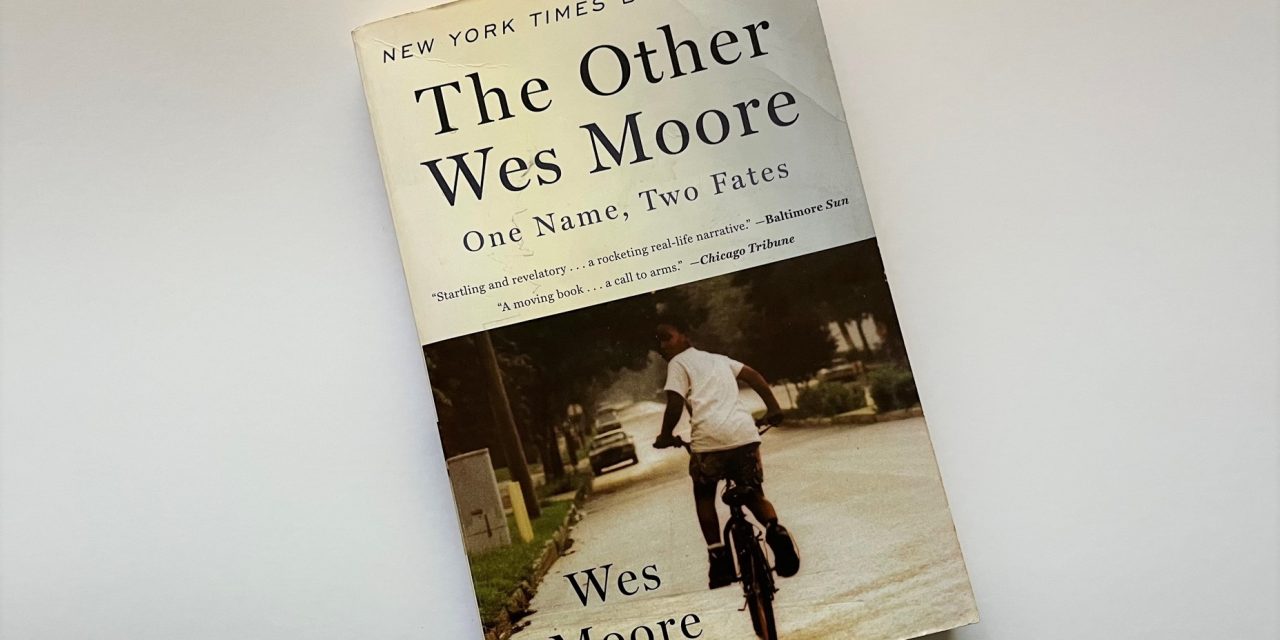This opinion represents the views of the author, and not MarylandReporter.com, which does not endorse or oppose candidates. Opposing viewpoints and comments are welcome.

Chris Anderson
I often shock friends and family when I show them various articles that I have penned. “This is you?!” they reply with shocked facial expressions. I wryly smile, but deep down, I want to shake them and shout, “yes idiot, a Black man can have a voice and at times, that voice is put on paper.”
Being born and raised in Baltimore City is, to me, more a blessing than a curse. Our city is quirky. It has its problems—and no doubt, those problems are magnified in local media and national TV series—but it also has a lot of what its nickname proclaims, charm.
In my home in West Baltimore, there are local half-and-half stores replete with chicken boxes and “looseys” (single cigarettes). There are area corner boys who if one treats them with respect, they will get the same in return. There are stories of hardship, faith, triumph and success. These stories are told frequently at AA meetings in church basements, on benches near senior homes in Park Heights, in pop-up gatherings outside liquor stores, and at times, in books.
Stories told in raw form
The stories of Baltimoreans are best told by the people who experience Baltimore in its most raw form. These stories do not come from the dog parks of Canton or from the harbor viewing apartments of downtown or the million-dollar homes of the Guilford and Roland Park neighborhoods. The stories are told with words not suitable for work and can, at times, paint its narrators with the infamous G-word, ghetto.
But these stories are ours and rightly so. We have had to endure our city’s hardships. Many of us have had friends and family members shot and killed in the 300+ murders that happen in our city every year. Many of us were affected by the recent e-coli outbreak in our drinking water. We complain about these problems and often smirk when we see our white counterparts from the counties shame us for “choosing” to live in such despair.
Baltimoreans may not have much, but we do have our narratives. We have our tales that if told should be credited to us and only us. This is why I am disappointed with the rhetoric coming from Wes Moore and his campaign for governor. The rhetoric begins with Moore’s book, “The Other Wes Moore.”
‘Othering’ the narrative
Recently, we have learned that Baltimore City public schools have purchased thousands of copies of this book and have even funded fieldtrips to events where Wes Moore was speaking. The problem, however, lies in the fact that the book’s theme is one that ‘others” Black Americans in our city, rather than empowers them. Moore makes no effort to hide this; the word “other” is even in the title.
The book itself aims at depicting Moore’s namesake counterpart to being from a broken family where crime was more the norm than the exception. He then goes further to credit his own rearing to “West Indian rules” as a way to distance himself from the Black American experience.
His description of the “cannon of Black autobiography” is comical. He cites Malcolm X’ autobiography as “a rite of passage for young Black men,” but then proceeds to talk at length about “the madness and pathology of America’s racial obsessions.”
It is no surprise that Moore’s campaign, particularly his rhetoric regarding Baltimore City, seems to espouse the same themes: Black hopelessness is largely the product of being Black; being melanated and adhering to “West Indian rules” renders a recipe for success.
Recipe for success
On Moore’s website, we find “A Bold Plan for Unlocking Opportunity for Maryland’s Black Families.” We see phrases like “forge pipelines,” “broaden the expansion,” and “explore the expansion” and are supposed to think: this man really gets it. He understands our plight and has a set of solutions.
But the opposite seems to be the case. To Moore, we, as Black Baltimore City residents, are mere charity cases. We are—both in his book and in his campaign rhetoric—the colonialist concept of “white man’s burden” whereby Wes Moore and his white counterparts are to make us more civilized and more prepared for their world.
The nuances of our stories do not matter to them. This becomes obvious in the prescriptions that they have for our betterment. As Black Americans who live in 2022, we yearn for ownership of wealth and careers. To Moore, our pleas are muted for something simpler: a 1960s-level inclusion that screams “No One Left Behind.”
For Black Americans who yearn for excellence and having the highest wages for our skill sets, Moore has a solution for that too: a higher minimum wage. And lastly, while Black Americans yearn to have their voices heard, Moore has consistently muted us with his tawdry books that merely depict a melanated man’s dream of making it in a white man’s world.
Melanated dream
Baltimoreans should reject Moore’s milquetoast offering for inclusion. We should see Moore for what he has been and seeks to be: an opportunist who has profited from the narrative theft of real Black Baltimoreans. We should vote our values and not be duped by the “first Black governor” rhetoric that his campaign has spewed. The Black adage that “all skinfolk ain’t kinfolk” holds true here now more than ever before.
If Black Baltimoreans want real change, they should consider the one item to which Moore is blessed: money. In this light, the issues facing Baltimoreans are not Black and White, but rather green and the lack thereof. If we opt for a candidate who champions mere inclusion and a higher minimum wage, then we will have sold ourselves to the lowest bidder. It’s time that we wake up. It’s time that we finally say no to Wes Moore.







Wes Moore’s book opens with a lie … the very first sentence, in fact – “This is the story of two boys living in Baltimore with similar histories and an identical name: Wes Moore.” Gubinatorial candidate Wes Moore was born in Takoma Park (almost in DC; nowhere near Baltimore,) then moved out of Maryland to New York. He didn’t move to Baltimore until he was 34 or so. To say that he’s “from” Baltimore is utter claptrap. If you listen to his platitudes, it’s always “unite this” or “expand access to that” … without a shred of credibility as to *how* he intends to achieve any of his empty promises. He’s a huckster, and is about as “machine-generated” as political candidates come. He has already committed to reinforce the Biden Administration policies that are currently crashing the US economy, and he will dutifully hand-over the Gubernatorial authority of Maryland to the unelected and unaccountable bureaucracy of the CDC. He has no intention of representing the citizens of Maryland.
Chris – great article and timely. The citizens in Maryland walk around with blinders on and can’t see the truth let alone past themselves. We all need to get the truth out and write articles of truth likes this. Wes Moore so loves city schools that while living in his 2 million dollar house he sends his children to private schools as well.
I’m voting Libertarian.
Your opinion is a day late and a dollar short. If you wanted to influence the debate this should have been published before the primaries. All this is Monday morning quarterbacking, I told you so, CYA. BS. The decision for who the next governor has been been made and you missed the boat.
If we say no to wes Moore, then we have to say yes to to the “unite the right” Qnon guy.
Isn’t a higher minimum wage green?